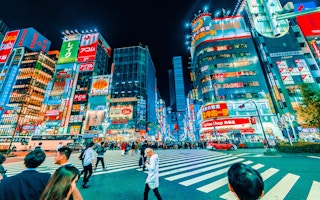More people around the world are game for greener products and services, but only if the switch doesn’t hit their pockets or require too much time and effort, new public opinion research shows.
To continue reading, subscribe to Eco‑Business.
There's something for everyone. We offer a range of subscription plans.
- Access our stories and receive our Insights Weekly newsletter with the free EB Member plan.
- Unlock unlimited access to our content and archive with EB Circle.
- Publish your content with EB Premium.
This calls for businesses to remove barriers and offer easily accessible and affordable solutions to consumers in the wake of the pandemic-induced economic crisis, according to the Healthy and Sustainable Living survey by Toronto-headquartered research consultancy GlobeScan.
The question is: Can they?
The poll of 27,000 adults across 27 countries found that awareness of impacts on the planet is growing, with more consumers recognising the need to protect it. For instance, 74 per cent of the respondents said the world needed to consume less to preserve the environment for future generations. This is an increase from 66 per cent last year.
And while 94 per cent of Asian respondents currently perceive Covid-19 as the most serious global issue, such concerns were closely followed by climate change (91 per cent) and air pollution (90 per cent) across the climate-vulnerable region. Asian nations surveyed included India, China, Thailand, Indonesia, Singapore, Vietnam, Hong Kong, South Korea, and Japan.
Yet although respondents indicated a willingness to consider more responsible offerings by companies, they need lower price points to transform their consumer behaviour, found the survey, which was backed by and produced in partnership with furniture firm IKEA, food company PepsiCo, financial services corporation Visa, and the World Wide Fund for Nature (WWF), among others.
People are also unlikely to embrace change if it’s too difficult. Saving water and electricity at home, reducing food waste, or choosing products with less packaging, for instance, were cited as relatively easy measures to take.
But lifestyle changes that involve sharing with others, buying second-hand products, renting furniture and taking reusable containers to stores are at present relatively less desirable choices to make. So is incorporating new technology, such as renewable power or electric vehicles, into people’s lives.
It is possible for corporates to offer sustainable products and services that are inexpensive enough to sway Asian consumers, said Wander Meijer, director at GlobeScan Asia. However, businesses that have figured how are still less prevalent in Asia than in other parts of the world.
A major barrier is the exorbitant premiums charged on greener products in the region’s supermarkets, he said. This contrasts with European companies, including IKEA and major food retailers Ahold-Delhaize and Lidl, which have sought to push lower-cost organic and sustainable consumer goods into the mainstream.
While producing responsibly can incur additional costs, Meijer said that some Asian stores are making green consumer goods more expensive than they need to be. “Sustainable products generally are not more affordable [than unsustainable ones], but they don’t have to be unaffordable either,” he said.
“If Asian supermarkets would price their sustainable products similarly to less sustainable options, then demand would shoot up, as consumers are generally prepared to pay a little more for sustainable products,” he said.
Another problem is the excessive amounts of plastic wrapping used in supermarkets, despite consumer demand for more responsible packaging, he said.
Meanwhile, firms must facilitate access to greener products and provide guidance as well as clear information on why certain purchasing decisions are better for the environment than others.
For instance, companies could seek certification for their goods or provide sufficient drop-off points for recycling schemes. Amid the belt-tightening coronavirus pandemic, offering affordable repair services could present further business opportunities.
Plenty of manufacturers have proven that making affordable products that are more sustainable is possible, Meijer noted. An early example was automaker Toyota’s Prius, the world’s first mass-produced gasoline-electric hybrid vehicle launched in 1997. At the time, many still believed that battery-powered cars would never become commercially viable.
Then, there is the consumer goods giant Unilever, which has a strong presence in Asia and has invested heavily in sustainability while keeping its products affordable. It recently pledged to invest €1 billion in projects to curb its use of plastics and slash emissions from the sourcing of its materials, as well as their manufacture and transport.
As desires to go green rise across the region, Asian companies have the “opportunity to educate, innovate, take leadership, and shape consumer behaviour,” Meijer said.








